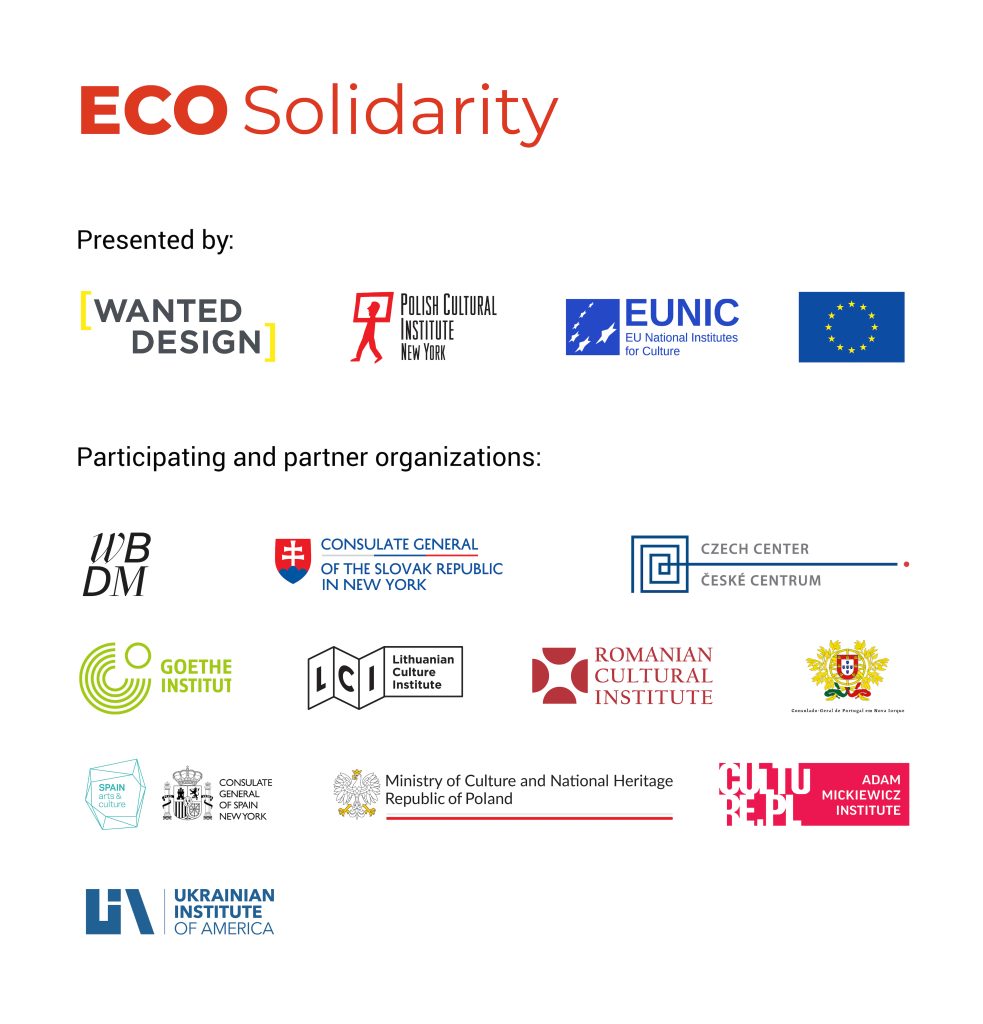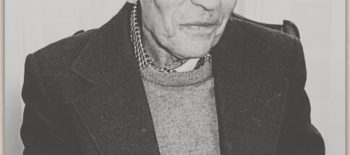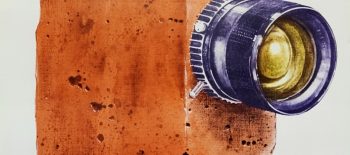
ECO Solidarity returns to WantedDesign Manhattan, uniting European designers in response to environmental and global war crises.
ECO Solidarity 2023 at ICFF + WantedDesigh Manhattan
TICKETS May 21-23, 2023
Javits Center, New York: Booth W1066
655 W 34th St, New York, NY 10001
Show hours
Sunday, May 21 & Monday, May 22 at 10am-6pm ET
Tuesday, May 23 at 10am-5pm ET
Attendees of WantedDesign Manhattan and ICFF will have an opportunity to hear the ECO Solidarity designers share their insights and vision in two informative talks held on the show floor. Talks are open to all fair attendees and the media, with no reservations required.
Sunday, May 21 at 11: 00am ET – ECO Solidarity, Part I
Moderated by Deborah Wang, Artistic Director and Curator, DesignTO
Presents: Studio Plastique, CollColl, Neo-Futuristic walks, FALA Architecture, and Terratico
Tuesday, May 23 at 11:00am ET – ECO Solidarity, Part II
Moderated by Cynthia E Smith, Curator, Cooper Hewitt, Smithsonian Design Museum
Presents: Balance in Motion, FOR, Armombiedro Studio, and FAINA
NEW YORK–ECO Solidarity, a collaborative initiative bringing together leading European designers and studios represented by EUNIC NY, the European Union National Institutes for Culture, returns to New York’s Javits Center May 21-23, 2023, as part of ICFF + WantedDesign Manhattan. Responding to the environmental and humanitarian crises, this year’s edition focuses on design with empathy, addressing some of the world’s most pressing conditions of human health and wellbeing.
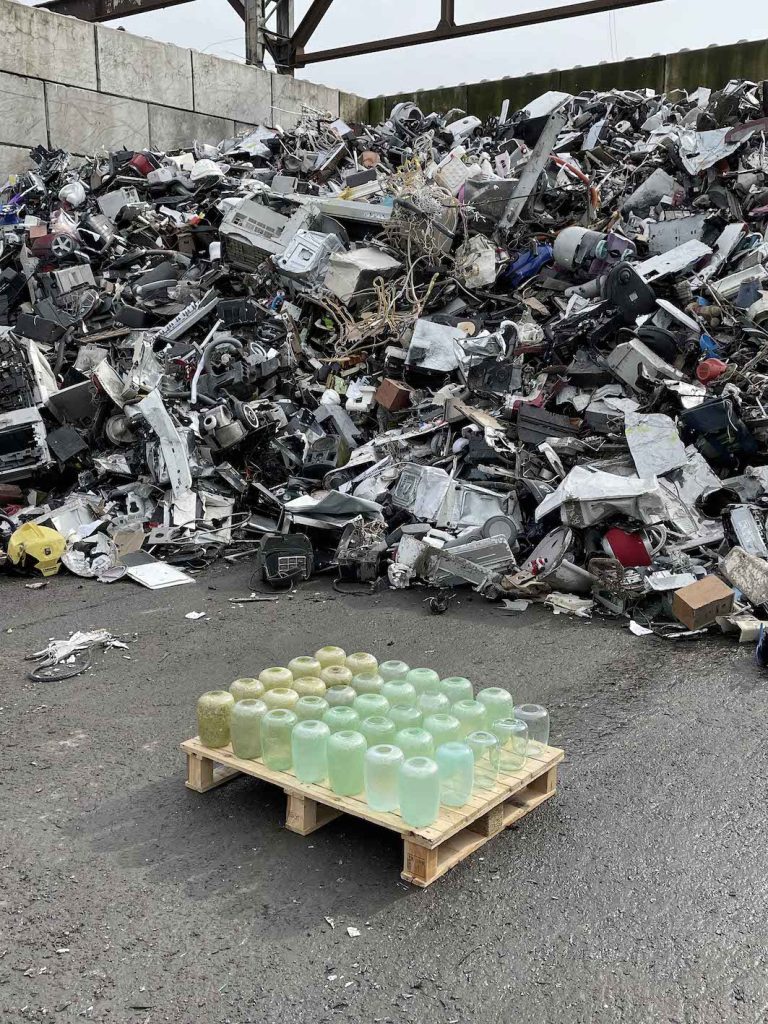
Related Events
CARE. Sensory Walk
Monday, May 22, 2023
at 11am-12:30pm ET
Free with RSVP
Meet at the 30th Street & 11th Avenue (stairs) entrance to The High Line
CARE is a city walk focused on haptics and smell. Together with a group of participants, Kamila Szatanowska and Paulina Rogalska of the Polish multidisciplinary design office FALA will lead a walk to open our senses and experience the space of the city. Amid the hustle and bustle of New York, we will find balance and look for nature in ourselves. By developing mindfulness and devoting time to ourselves, we have a greater potential to open up to the environment, noticing its needs and empathy towards human and non-human neighbors of everyday life. CARE extends the premise of FALA’s exhibition at WantedDesign Manhattan to the city.
Neo-Futuristic Walks: NYC
Monday, May 22, 2023
at 2-4:30pm ET
Free with RSVP
Meet in designated Javits Center area. After registering, exact location and additional information will be emailed prior to the event.
Neo–futurists are not afraid of floods, hurricanes or droughts. They have already lived through many apocalypses and trained their eyes and feet to spot the signs of danger. – From the Neo-futurists’ manifesto. In these turbulent times of climate emergency, architects and urban designers are casked about their role and responsibilities in addressing climate change. Is it enough to focus solely on sustainable materials and short-term approaches for a quick fix? Or is time that a more comprehensive, multi-tiered solution is adapted? With rising sea levels a reality, the time to dramatically alter our habits and change our city landscapes is now. Cities lying below or just slightly above sea level are extremely fragile urban areas. What will happen when water comes closer to our homes? How do we both embrace and mitigate these conditions? What measures can be taken?
Interactive Workshop on Eco Design with Balance Is Motion
Saturday, May 20, 2023
at 11am ET
Free with RSVP
Meet at Bohemian National Hall, 321 E 73rd Street.
The Czech Center New York offers an interactive workshop prepared in collaboration with the Czech design studio Balance is Motion debuting the Ruderall project at the ECO Solidarity exhibition. An important aspect of the Ruderal project is the principle of co-design which aims to involve users in the creation of the final products. Attendees of the workshop will thus be able to explore their ideas and come up with their own miniature creations for the Ruderal collection. Moreover, with the use of recycled filaments, they will be able to observe the 3D printing process in action.
Showcasing designers and design studios from nine European countries, ECO Solidarity 2023 includes a design exhibit, two panel discussions, workshops, and more. The goal of ECO Solidarity 2023 is to reexamine the roles of designers and architects, finding more ways to offer vital skills and deliver practical support for individuals and communities affected by environmental disasters, war, and violence. This year’s projects explore ways to improve urban domestic infrastructures, preserve and restore natural habitats, protect the health and wellbeing of people, and accommodate displacement of the most vulnerable members of the community.
This year’s program will be organized around two themes:
- The first focuses on prevention and research, new sustainable materials and methods of implementation that improve durability, circularity, recycling waste, carbon-neutral and low-emission productions, with the goal of improving human and environmental habitats.
- The second focuses on ethical issues that surround
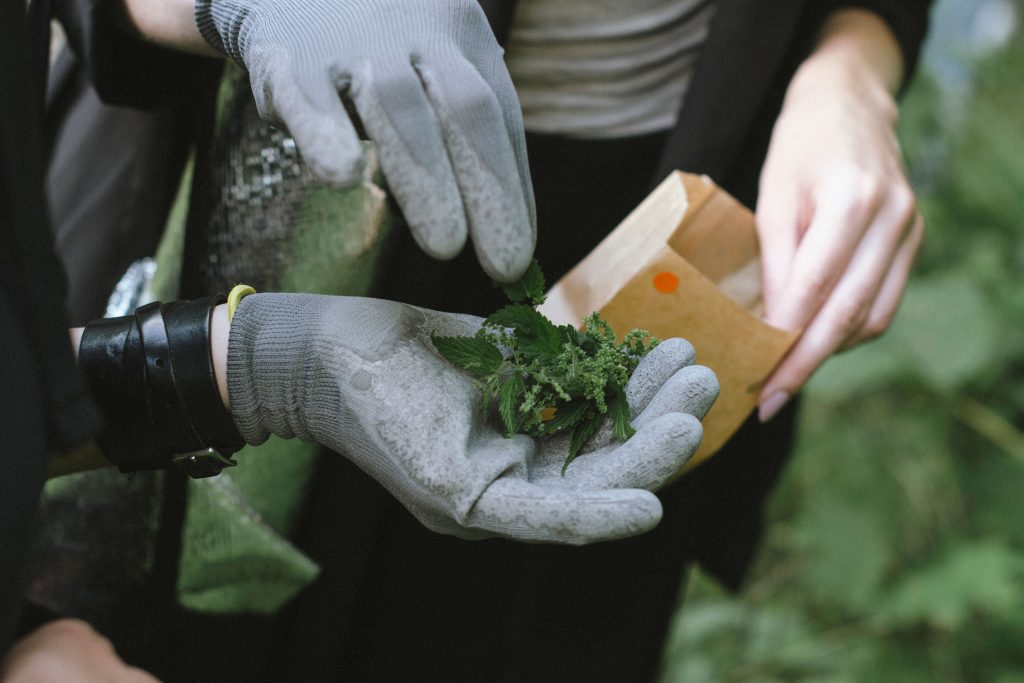
Through sharing research and resources on the newest sustainable design solutions, as well as engaging in participatory actions and interventions, ECO Solidarity 2023 aims to contribute to the re-envisioning of future post-war public spaces, living spaces, and shared environments.
Participating E.U. designers and studios include: Theresa Bastek, Studio Plastique (Wallonie-Bruxelles Region, Belgium), Eliška Novák Knotková, Balance is Motion (Czech Republic), Dorian Cani, COLLCOLL (Germany), Aušra Česnauskytė and Goda Verikaitė, Neo Futuristic Walks (Lithuania), Kamila Szatanowska and Paulina Rogalska, FALA Architektura (Poland), Pepe Peralta Guerrero, FOR (Romania), Otto Nagy, Terratico (Slovakia), Angel Mombiedro, Armombiedro Studio (Spain), with a special guest, Victoria Yakusha, FAINA Design from Ukraine.
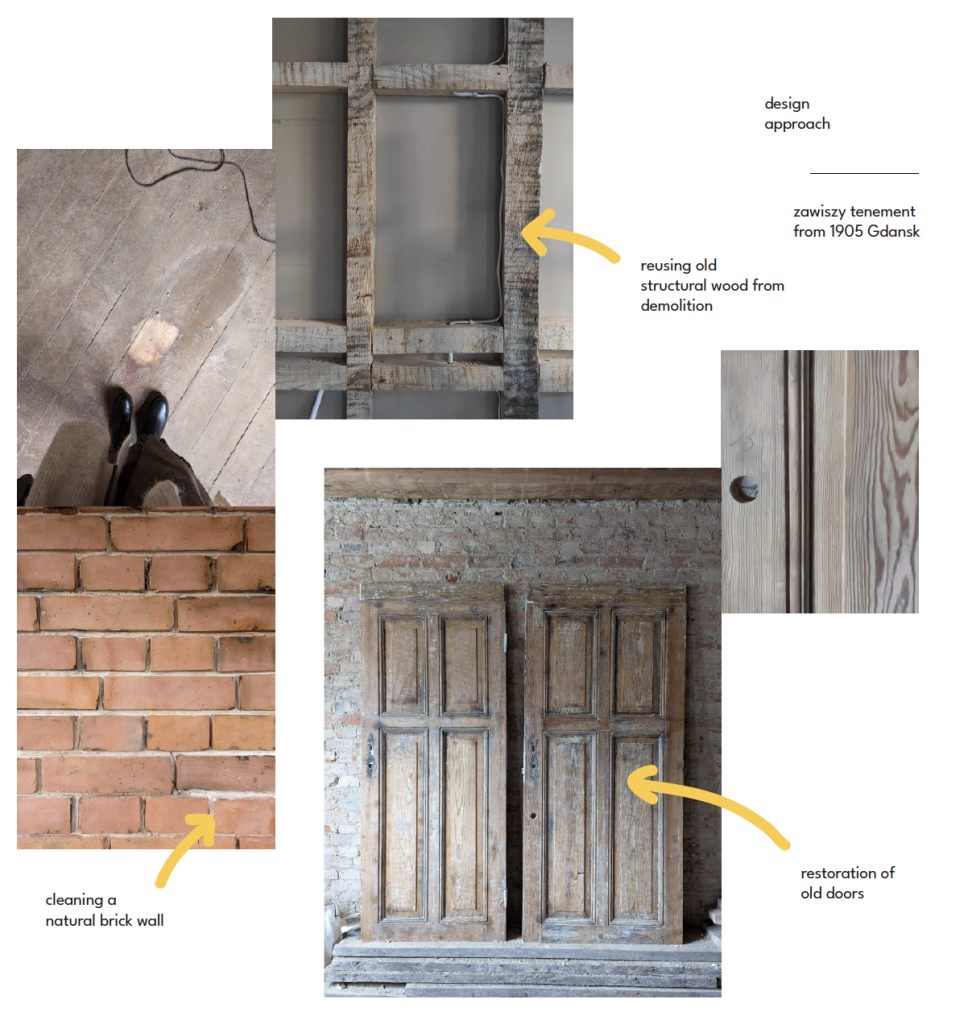
Representing Poland this year, FALA Architektura is an architecture studio based in Gdańsk, founded in 2018 by two visionary women architects of new generation, Kamila Szatanowska and Paulina Rogalska. The main areas of FALA interest and research are not only holistic design in the context of progressive climate change, especially multi-species design, but also sensory cognition of space, education and action in nature, reconstructing urban public spaces subjected to demolition and natural habitats damaged by anthropocentric activity. Vital part of FALA practice are intersectional workshops which activate multisensory perception of public urban and natural environments often engaging vision or hearing impaired participants. Kamila and Paulina follow a self-reflective philosophy of their own roles as architects in this place and time, in response to degrading ecosystems, urban deterioration, and natural disasters, as well as social and cultural changes.
FALA will present their ongoing Zawiszy Tenement apartment refurbishment, an architectural project at a historical, pre-war building from 1905 in Gdańsk. The Zawiszy project is a ‘design in process’ – gradually discovering the old structure and making decisions on site. Project made with care and close cooperation with contractors learning about old techniques in new conditions. FALA uses low-tech producing methods, reuse old structural elements of its historical interior, for ex. wood from demolition, doors, windows, and demolition material to create a new space.
Reducing demolitions, they give respect to historical structures and take advantage of its nature. Going for circularity, architects carefully recovered existing materials. Reconstructing existing elements, they appreciate details inherent in its history. Reconnecting with nature, FALA uses natural materials with low CO2 load. Thanks to them they improve space microclimate, scent and haptics.
For ECO Solidarity program at Javits Center in May, FALA will showcase CARE installation relating to Zawiszy Tenement, present FALA manifesto, and conduct a workshop engaging sensorial awareness in an interactive city walk. CARE is an interactive installation featuring a scent associated with memory of a place in Poland, specifically a perfume – a composition of scents from their current architectural reconstruction project Zawiszy Tenement 1905 site – activated through an uplifting interactive action engaging smell and other senses as ways of perception.
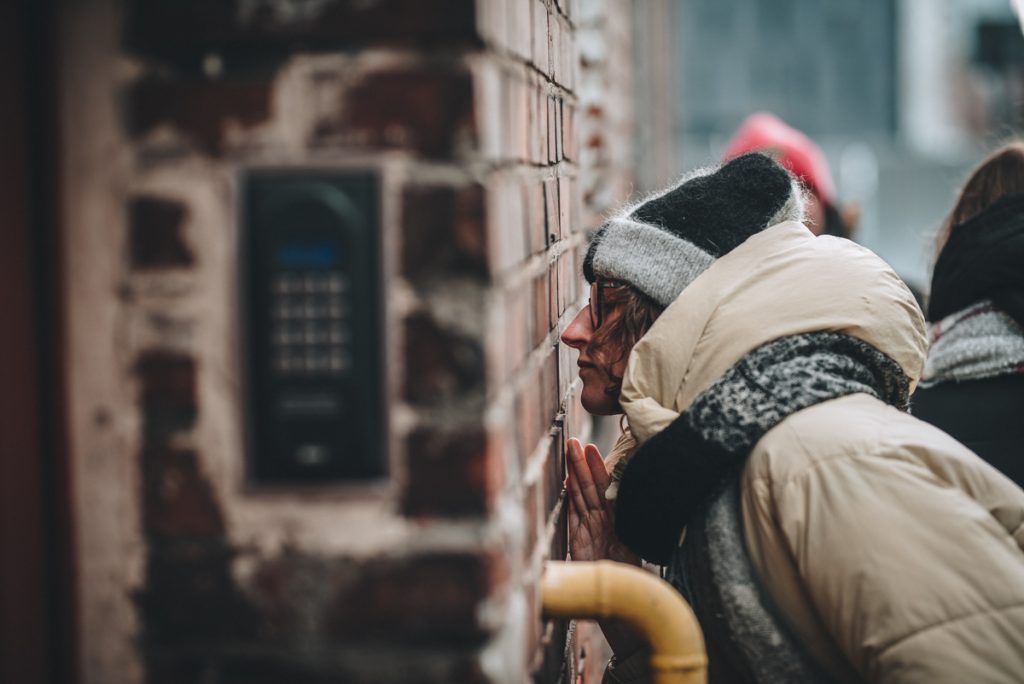
Pointing inward to the memory process activated by senses in CARE installation, FALA challenges the conventional ocular-centric gaze of an architect. Through creation of an unique multisensorial memory map of a space, FALA reflects on mechanisms of human memory, narrating a place through senses, while it cold be no longer existing or removed at a distance, like it is the case of war refugees and people on exiles displaced by military action.
Zawiszy Tenement space has an aura built on haptics, smell, light and air humidity, dressed in nutty and earthy fragrance of clay and ceramics. The woody scent of the refurbished floor intersects with a fresh hint of moss growing on stones and resin from trees in the garden. The interactive CARE project will engage participants to be present, aware, and will invite to experience memory of a remote place in Poland.
Since its founding in 2020, ECO Solidarity is co-curated by Odile Hainaut, Brand director of ICFF and WantedDesign Manhattan, and Izabela Gola, Visual Arts and Design Curator at the Polish Cultural Institute New York. The exhibition is designed and curated by Deborah Wang, architect and artistic director of DesignTO, Toronto. ECO Solidarity 2023 Advisory Committee includes Cynthia E. Smith, Curator of Socially Responsible Design at Cooper-Hewitt, Smithsonian Design Museum; Jonsara Ruth, co-founder and Design Director, Parsons Healthy Materials Lab; Paul Clemence, photographer, writer and curator exploring the cross-sections of design, art and architecture; and Tomek Rygalik, industrial designer, educator and founder of Studio Rygalik, which promotes a sensible, holistic approach towards design.
ECO Solidarity 2023 is presented in partnership with EUNIC NY, the European Union National Institutes for Culture, including Wallonie-Bruxelles Design Mode, Czech Center New York, Goethe-Institut New York, Consulate General of Lithuania in New York, Lithuanian Culture Institute and the Architecture Fund, Polish Cultural Institute New York, Romanian Cultural Institute New York, Consulate General of Slovak Republic in New York, Consulate General of Spain New York, Consulate General of Portugal New York, and the European Union Delegation to the United Nations. ECO Solidarity had been fueled for two consecutive years by the EUNIC Cluster Grant Award granted by the EUNIC Global cultural organization, European Union National Institutes for Culture (EUNIC).
This year’s special guest representing war-torn Ukraine, FAINA Design, is invited as an expression of solidarity with Ukrainian nation. FAINA Design participation is supported by EUNIC, Polish Cultural Institute New York, Ukrainian Institute of America in New York, and Adam Mickiewicz Institute in Warsaw, Poland.
ECO Solidarity was initiated by the Polish Cultural Institute New York in partnership with WantedDesign and a group of European Union National Institutes for Culture (EUNIC) organizations to address the imperative need for human-centered design in response to humanitarian and public health crises by focusing on ecology, the climate emergency, public health, wellbeing in public spaces.
The name of this initiative was inspired by the Solidarity (Polish: Solidarność) social and political movement which led to the collapse of the Soviet Union, setting the nations on a course toward democracy. The year 2020 marked the 40th anniversary of its formation.
WantedDesign is a NYC-based platform dedicated to promoting design and fostering the international creative community throughout the year. Founded in New York City in 2011 by Odile Hainaut and Claire Pijoulat, WantedDesign has established itself as a constant and staunch supporter of U.S. and international design. Focusing on emerging and new ideas in design, its main trade event WantedDesign Manhattan was acquired by Emerald in 2019 and is now co-locating with ICFF at the Javits Center.
The International Contemporary Furniture Fair (ICFF) is where designers, retailers, developers, and architects converge to exchange inspiration and ignite a competitive drive for contemporary residential and commercial interiors. With a selection of both established and emerging designers, the ICFF delivers a selection of the globe’s finest, most creative, individual and original avant-garde products showcased in one venue. Exhibitors from 36 countries come to the ICFF each year to showcase the newest frontier of high-end, contemporary interiors.
European Union National Institutes for Culture (EUNIC) is the European network of organizations engaging in cultural relations. Together with our partners, we bring to life European cultural collaboration in more than 100 countries worldwide with a network of 133 clusters, drawing on the broad experience of our members from all EU Member States and associate countries. EUNIC advocates a prominent role of culture in international relations and is a strategic partner of the EU, actively involved in the further definition of European cultural policy. EUNIC is a platform for knowledge sharing and for capacity building amongst its members and partners.
